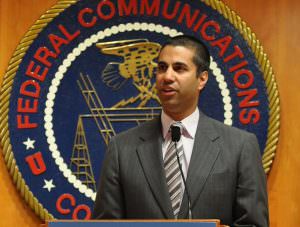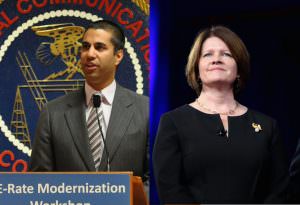Want a Faster Internet Connection? Try Any of 31 Other Countries
The United States has fallen behind competing nations in the speed of its Internet infrastructure. There's more than faster movie downloads at stake. And yes, there are sleazy corporate stances muddying up the issue.
Want a faster Internet connection? Think about moving to Riga, Latvia. Or Hong Kong. Or any of 31 other places that have higher average Internet connection speeds than the United States.
In an interesting look Sunday, The New York Times explores the apparently growing Internet speed gap between the United States and economic competitors around the world. And the news is not good. From the article, which compared San Antonio with Riga and found the Texas city lacking:
The United States, the country that invented the Internet, is falling dangerously behind in offering high-speed, affordable broadband service to businesses and consumers, according to technology experts and an array of recent studies.
In terms of Internet speed and cost, “ours seems completely out of whack with what we see in the rest of the world,” said Susan Crawford, a law professor at Yeshiva University in Manhattan, a former Obama administration technology adviser and a leading critic of American broadband.
The Obama administration effectively agrees. “While this country has made tremendous progress investing in and delivering high-speed broadband to an unprecedented number of Americans, significant areas for improvement remain,” said Tom Power, deputy chief technology officer for telecommunications at the White House.
The disagreement comes over how far behind the United States really is in what many people consider as basic a utility as water and electricity — and how much it will affect the nation’s technological competitiveness over the next decade.
Notably, places that have developed municipal fiber-optic systems in the U.S. have achieved fast and competitive speed rates, though the cost of the service has been high. But common ownership of what has become an integral part of the world economy seems like the smart way to go. Especially with private carriers like Verizon trying to game the system to, in essence, extort cash from users by slowing access to some sites and speeding access to others, especially those paying higher fees.
Another New York Times article from September explained the complicated issue this way:
The battle pits one of the largest providers of Internet access — Verizon — against the Federal Communications Commission, which for nearly 80 years has been riding herd on the companies that provide Americans with telecommunications services.
Verizon and a host of other companies that spent billions of dollars to build their Internet pipelines believe they should be able to manage them as they wish. They should be able, for example, to charge fees to content providers who are willing to pay to have their data transported to customers through an express lane. That, the companies say, would allow the pipeline owner to reap the benefits of its investment.
The F.C.C., however, believes that Internet service providers must keep their pipelines free and open, giving the creators of any type of legal content — movies, shopping sites, medical services, or even pornography — an equal ability to reach consumers. If certain players are able to buy greater access to Internet users, regulators believe, the playing field will tilt in the direction of the richest companies, possibly preventing the next Google or Facebook from getting off the ground.
That fight over net neutrality faced oral arguments in a federal court in Washington, D.C., this fall, with a ruling expected soon. Wired sums up what hangs in the balance:
The implications of such a decision would be profound. Web and mobile companies will live or die not on the merits of their technology and design, but on the deals they can strike with AT&T, Verizon, Comcast, and others. This means large phone and cable companies will be able to “shakedown” startups and established companies in every sector, requiring payment for reliable service. In fact, during the oral argument in the current case, Verizon’s lawyer said, “I’m authorized to state from my client today that but for these [FCC] rules we would be exploring those types of arrangements.”
Wait, it gets even worse. Pricing isn’t even a necessary forcing factor. Once the court voids the nondiscrimination rule, AT&T, Verizon, and Comcast will be able to deliver some sites and services more quickly and reliably than others for any reason. Whim. Envy. Ignorance. Competition. Vengeance. Whatever. Or, no reason at all.
So what if you’ve got a great new company, an amazing group of founders, a seat in a reputable accelerator program, great investors and mentors. With the permission-based innovation over “our pipes” desired from the likes of Comcast, Verizon and AT&T… there’s no meritocracy here.
Imagine that — a failure of meritocracy, done in by corporate greed.
—Posted by Scott Martelle.
Your support matters…Independent journalism is under threat and overshadowed by heavily funded mainstream media.
You can help level the playing field. Become a member.
Your tax-deductible contribution keeps us digging beneath the headlines to give you thought-provoking, investigative reporting and analysis that unearths what's really happening- without compromise.
Give today to support our courageous, independent journalists.




You need to be a supporter to comment.
There are currently no responses to this article.
Be the first to respond.